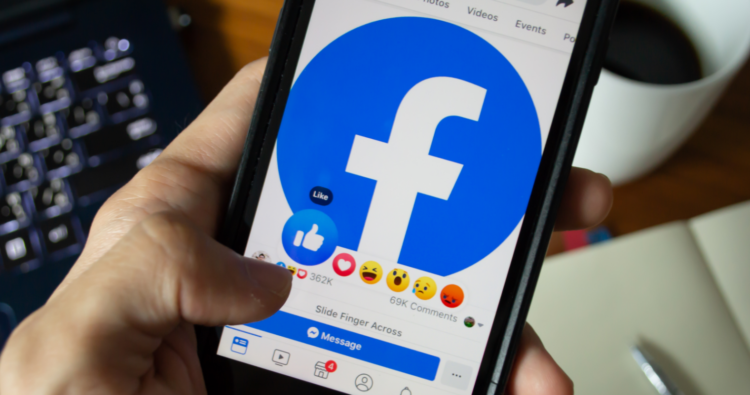By Aaron Miller-
Antitrust law suits against facebook by the Federal Trade Commission (FTC) and state attorneys general, have failed, after being thrown out by a U.S judge.
On Monday, US District Judge James Boasberg in Washington DC, threw out the FTC’s case, stating that prosecutors failed to provide satisfactory explanation for how they came to the conclusion that Facebook controls more than 60 per cent of the social networking market.
The judge said in his ruling that the FTC failed to meet the burden for establishing that Facebook has a monopoly in social networking. He said the agency could refile the complaint within 30 days.
“Although the court does not agree with all of Facebook’s contentions here, it ultimately concurs that the agency’s complaint is legally insufficient and must therefore be dismissed,” Boasberg wrote. Facebook shares rose as much as 4.4% in New York following the ruling.
The Facebook lawsuits were filed in December as part of a growing crackdown on America’s tech giants believed to be unfairly exploiting their market position. The cases followed a Justice Department complaint against Alphabet Inc. for allegedly monopolizing internet search, and the findings of a House investigation that accused tech companies of abusing their dominance. Lawmakers have since proposed a pile of bills that would cast a broad regulatory net over the companies.
The case was based on the 2012 acquisition of Instagram and the 2014 takeover of WhatsApp. Officials say Facebook made the deals because it saw both companies as threats to its business. Rather than compete with its own products, Facebook followed Chief Executive Officer Mark Zuckerberg’s mantra: “it is better to buy than compete,” according to the FTC complaint.
The decision is a blow to the FTC and the states, which claimed Facebook violated antitrust laws by buying photo-sharing app Instagram and messaging service WhatsApp in order to cut off emerging competitive threats and protect its monopoly.
The judge wrote that social networking “services are free to use, and the exact metes and bounds of what even constitutes a [social networking] – i.e., which features of a company’s mobile app or website are included in that definition and which are excluded — are hardly crystal clear” in his decision, as Politico first reported.
“The FTC’s inability to offer any indication of the metric(s) or method(s) it used to calculate Facebook’s market share renders its vague ‘60%-plus’ assertion too speculative and conclusory to go forward,” he said.
Facebook had defended the legal suit on a number of grounds. It argued that the FTC investigated both acquisitions when they were announced and allowed both deals to proceed. Facebook also argued the FTC’s case was unprecedented and the agency never explained why its prior decisions approving the purchases were mistaken. The government simply wants a “do-over,” Facebook said.
Mr Boasberg said in a separate decision that the state attorneys general had taken too long to take action against Facebook over the company’s 2012 purchase of Instagram and 2014 WhatsApp acquisition.
“In the internet age, not surprisingly, Facebook finds itself in the spotlight, as both federal and state regulators contend, in two separate actions before this Court, that it is now the one violating the antitrust laws,” Mr Boasberg wrote.
“The company, they allege, has long had a monopoly in the market for what they call ‘Personal Social Networking Services’,” said.
“Ultimately,” Mr Boasberg said, “this antitrust action is premised on public, high-profile conduct nearly all of which occurred over six years ago — before the launch of the Apple Watch or Alexa or Periscope, when Kevin Durant still played for the Oklahoma City Thunder, and when Ebola was the virus dominating headlines,” the judge wrote.
“The Complaint’s allegations themselves make clear that the States could easily have brought suit then, just as they make clear that any equitable relief this Court could or would order now would greatly prejudice both Facebook and third parties,” he said.
Mr Boasberg insisted that the system of antitrust enforcement established by Congress does not exempt plaintiffs from “’the consequences of [their] choice’ to do nothing over the last half decade”.
“The Court accordingly finds that, as a matter of law, their challenges to Facebook’s acquisitions — whether they are targeted independently or as part of a larger scheme of anticompetitive behavior — are barred by the doctrine of laches or otherwise furnish no basis for the injunctive relief sought,” he said.
In a statement shared with The Independent, a spokesperson for Facebook said: “We are pleased that today’s decisions recognize the defects in the government complaints filed against Facebook.”
“We compete fairly every day to earn people’s time and attention and will continue to deliver great products for the people and businesses that use our services,” they said.
The effort to end Facebook’s apparent monopoly in the social networking sector may not be over yet, however, with both state and federal prosecutors able to file new antitrust complaints addressing Mr Boasberg’s concerns within 30 days.
In India, the Parliament’s Standing Committee on Information Technology, headed by Congress leader Shashi Tharoor, is scheduled to hold a meeting on Tuesday to hear the views of Facebook India and Google India on safeguarding citizens’ rights and prevention of misuse of social media and online news media platforms.
The meeting aims to address alleged misuse of social media platforms, and the government’s ongoing tussle with Twitter.

